Find Help
More Items From Ergsy search
-
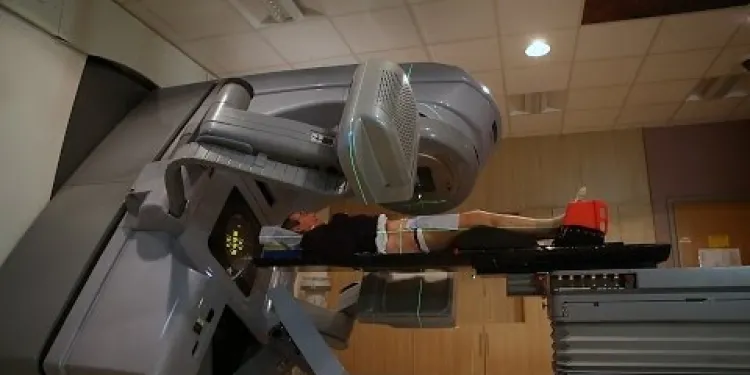
What is it like having Prostate Radiotherapy treatment?
Relevance: 100%
-
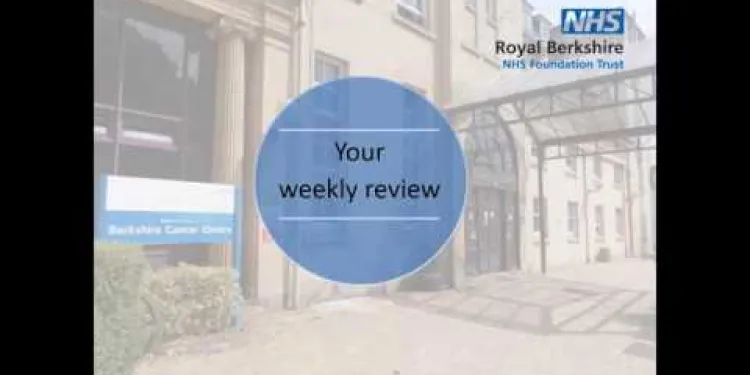
Royal Berkshire NHS Foundation Trust: Radiotherapy for prostate cancer
Relevance: 85%
-
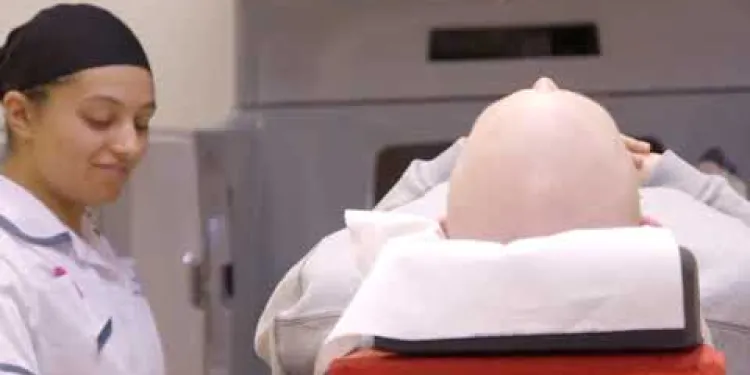
What is Radiotherapy, and its use in treatment for cancers?
Relevance: 78%
-
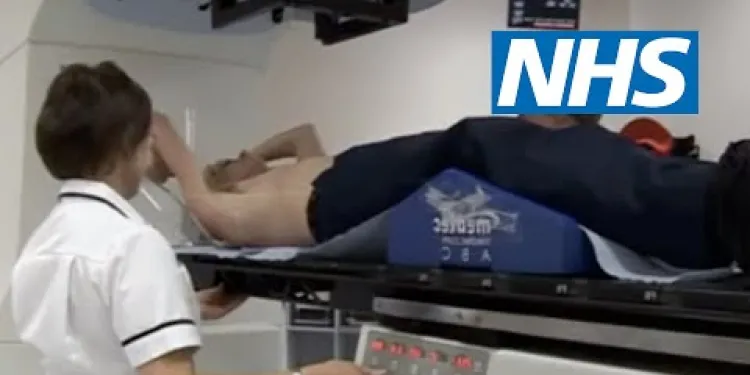
Cancer treatment: what happens during radiotherapy? | NHS
Relevance: 63%
-

What is the role of immunotherapy in prostate cancer treatment?
Relevance: 62%
-

What is active surveillance in prostate cancer treatment?
Relevance: 62%
-
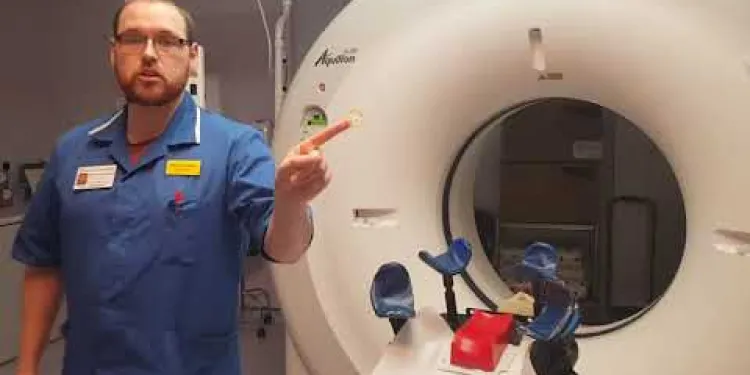
Radiotherapy CT scanner
Relevance: 60%
-

Are there clinical trials available for prostate cancer treatment?
Relevance: 60%
-
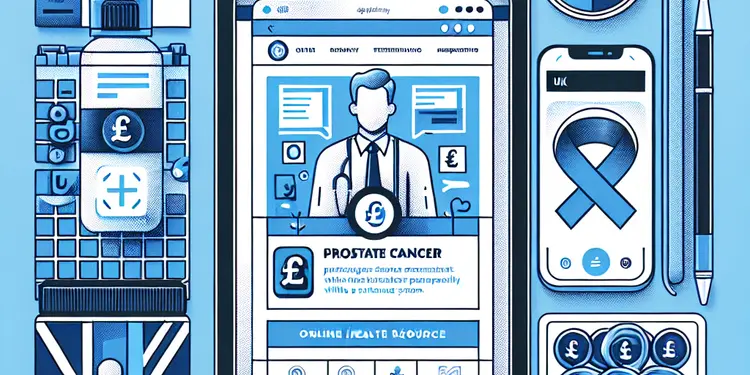
Where can I find online resources for prostate cancer treatments on the NHS?
Relevance: 57%
-
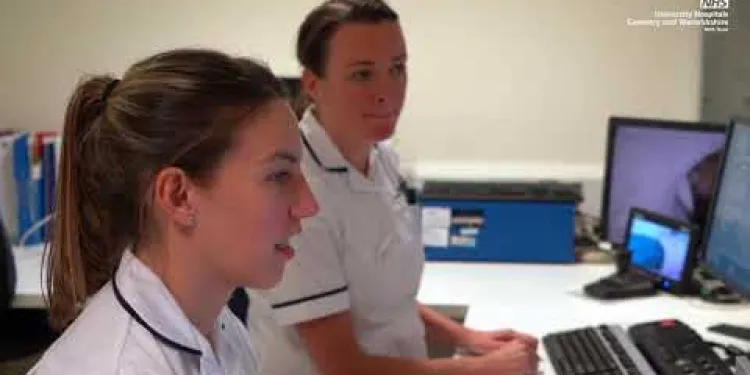
Radiotherapy Services at University Hospital
Relevance: 57%
-
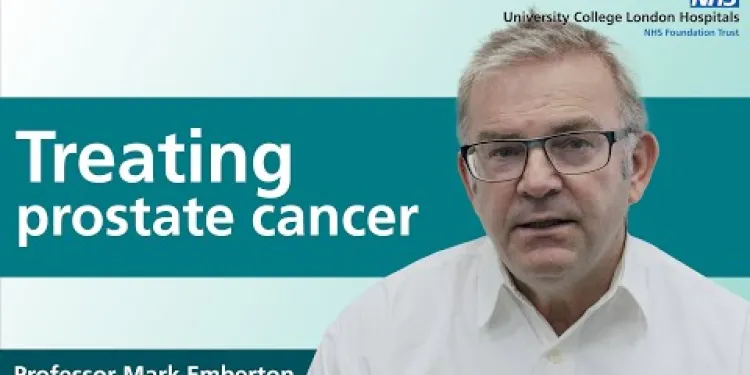
Treating prostate cancer
Relevance: 56%
-

How is prostate cancer treated?
Relevance: 56%
-
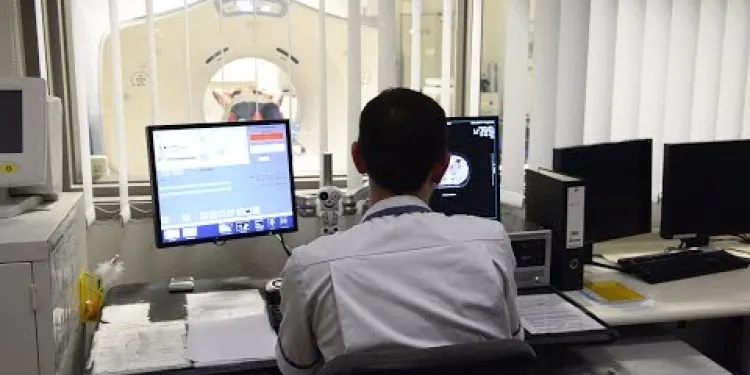
Having radiotherapy for breast cancer - 3 Videos
Relevance: 56%
-
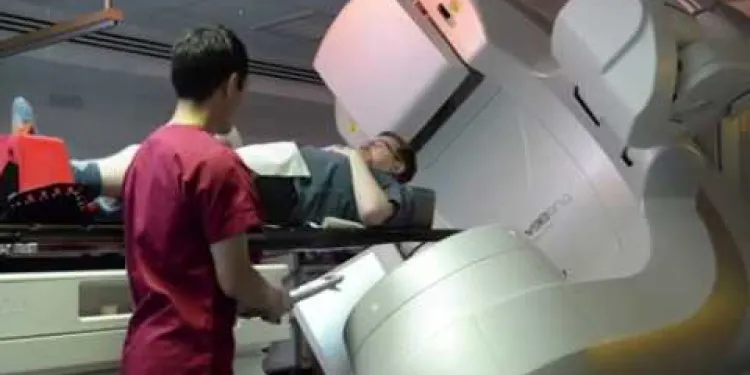
A Radiotherapy appointment in east and North Hertfordshire
Relevance: 54%
-

Can prostate cancer recur after treatment?
Relevance: 54%
-
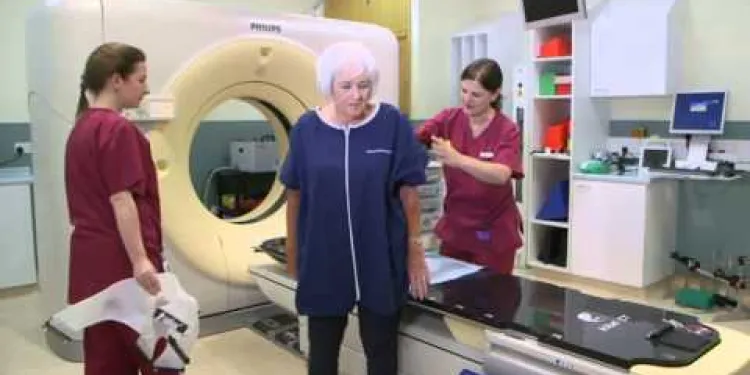
Radiotherapy to the Head and Neck: A Guide for patients and their carers
Relevance: 53%
-

Can lifestyle changes complement prostate cancer treatment?
Relevance: 53%
-
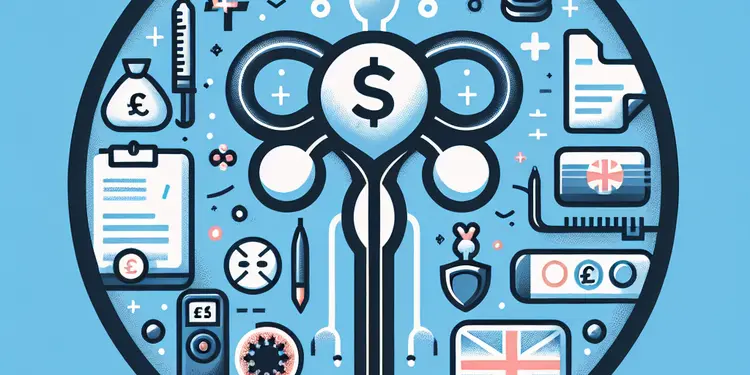
How is advanced prostate cancer treated?
Relevance: 52%
-

What factors determine the treatment plan for prostate cancer?
Relevance: 52%
-
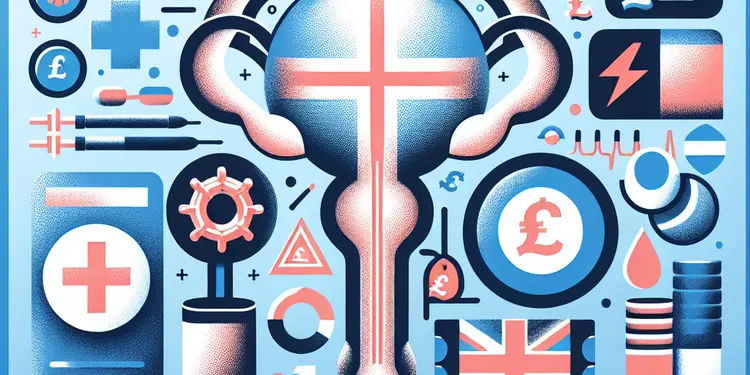
Can Abiraterone be used for early-stage prostate cancer?
Relevance: 52%
-

What is the purpose of a bone scan in prostate cancer treatment?
Relevance: 52%
-

What are the common treatment options for prostate cancer?
Relevance: 51%
-

Breakthrough in Cancer Treatment Offers Hope for Prostate Cancer Patients
Relevance: 50%
-
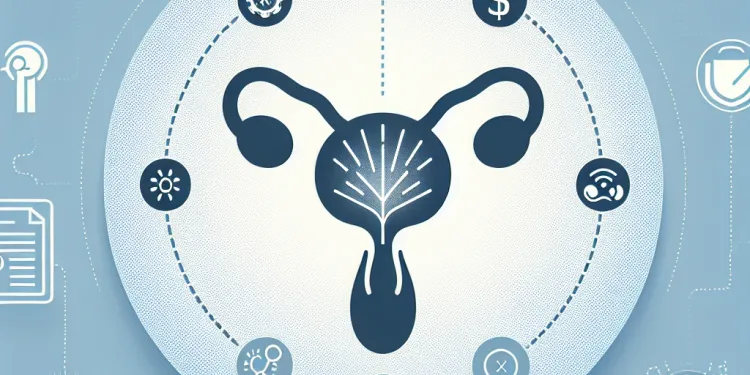
Hormone Therapy for prostate cancer
Relevance: 50%
-
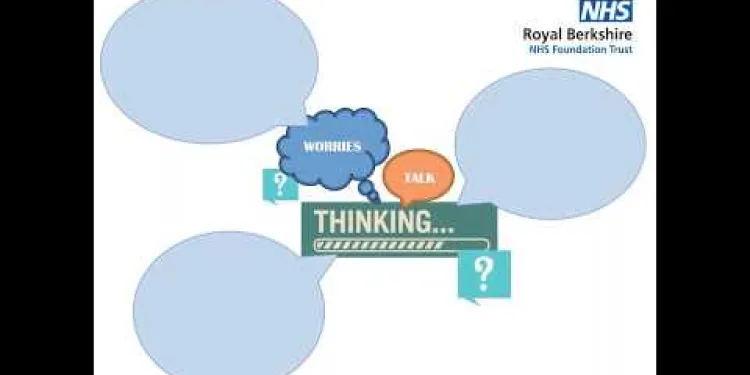
Royal Berkshire NHS Foundation Trust: Radiotherapy for head and neck cancers
Relevance: 50%
-
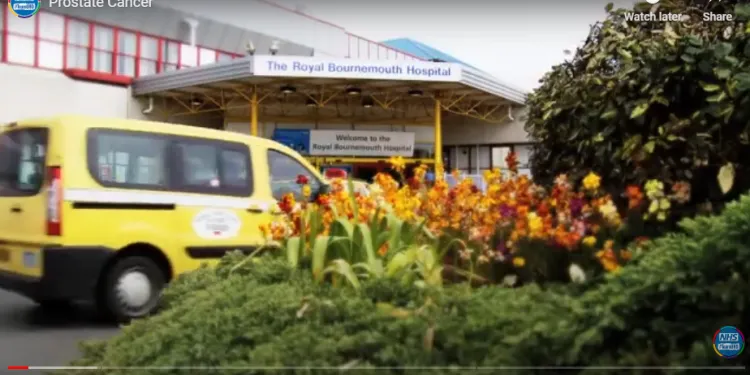
What is Prostate Cancer?
Relevance: 46%
-

What is the importance of PSA levels in treatment?
Relevance: 46%
-
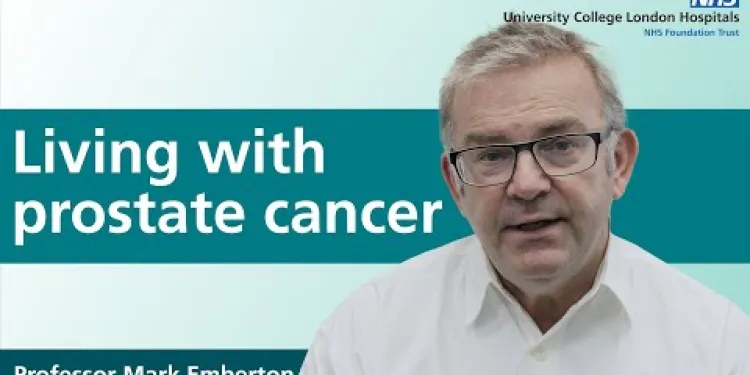
Living with prostate cancer
Relevance: 46%
-
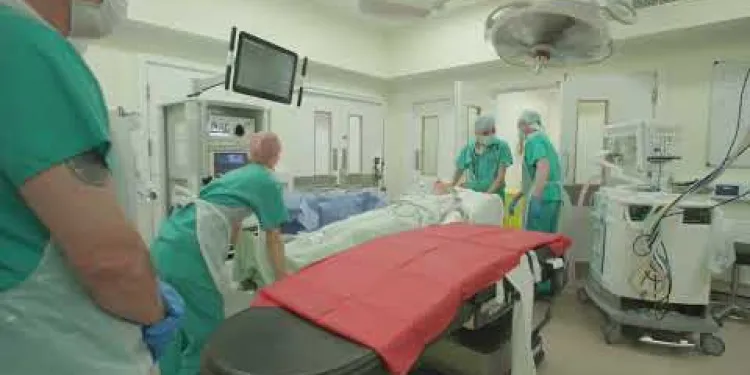
Prostate Surgery
Relevance: 45%
-

Is BPH the same as prostate cancer?
Relevance: 45%
-
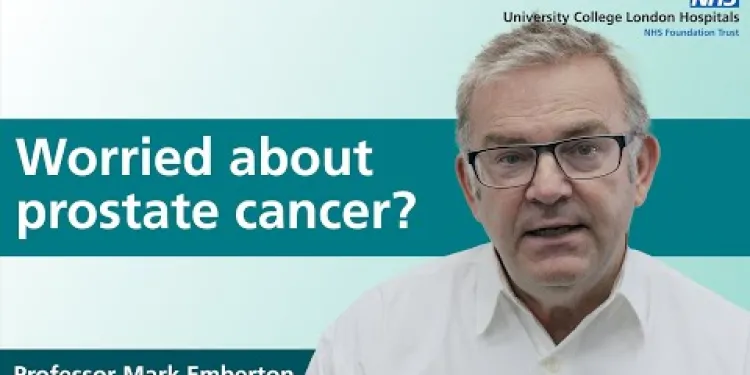
Prostate cancer diagnosis and tests
Relevance: 43%
-
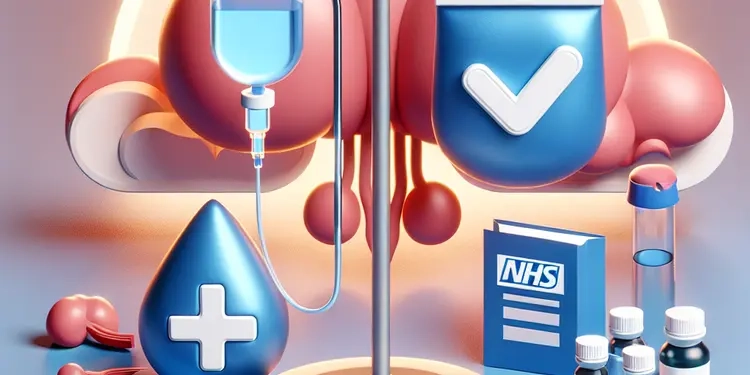
When is chemotherapy used for prostate cancer?
Relevance: 43%
-
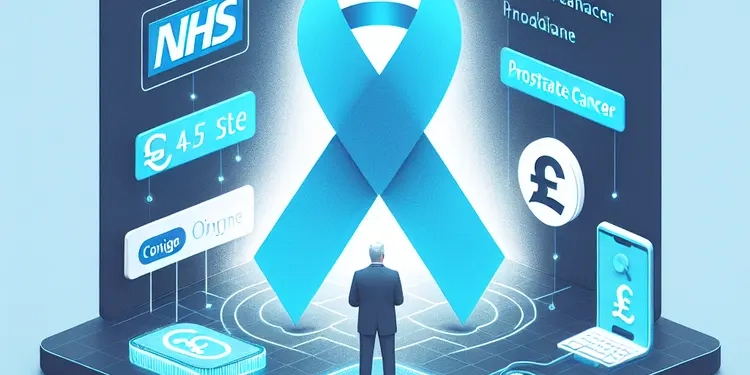
Does the NHS offer an online hospital for prostate cancer?
Relevance: 43%
-

Is focal therapy an option for prostate cancer?
Relevance: 42%
-

Does Abiraterone cure prostate cancer?
Relevance: 42%
-
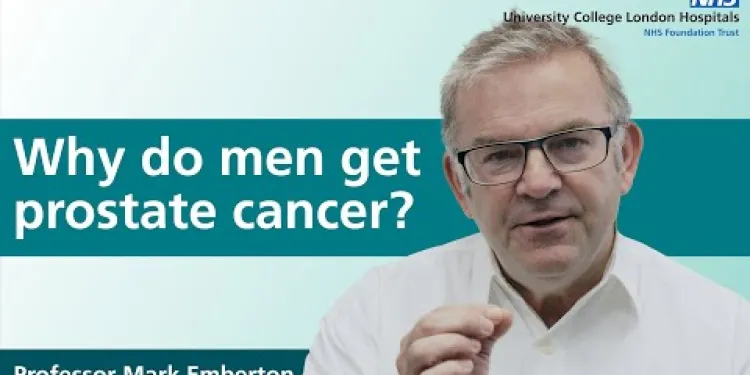
Why do men get prostate cancer?
Relevance: 42%
-
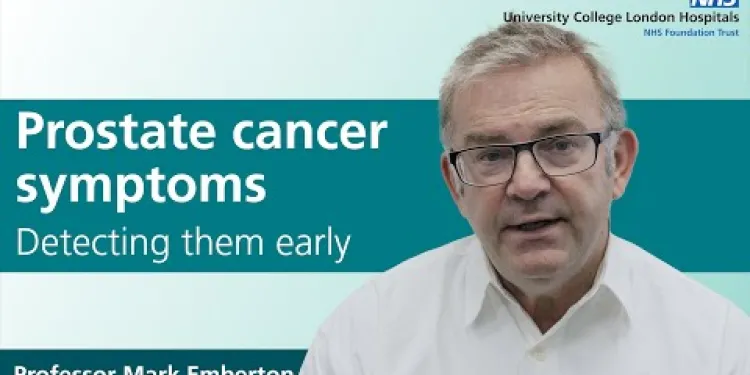
Prostate cancer symptoms - detecting them early
Relevance: 41%
-

what is benign prostate hyperplasia (non-cancerous)?
Relevance: 41%
-

How does surgery treat prostate cancer?
Relevance: 41%
-

What are prostate supplements and do they work?
Relevance: 41%
What is it like having Prostate Radiotherapy Treatment?
Introduction to Prostate Radiotherapy
Prostate radiotherapy is a common treatment for prostate cancer, widely used in the United Kingdom. It involves the use of high-energy radiation to target and destroy cancerous cells in the prostate gland. This treatment is typically recommended for men with localized prostate cancer that hasn't spread outside the prostate. There are two primary types of radiotherapy – external beam radiotherapy (EBRT) and brachytherapy.Pre-Treatment Preparation
Before starting prostate radiotherapy, patients undergo a series of preparatory steps. This begins with a planning session, known as a simulation, where CT scans or MRI are performed. These imaging techniques help in creating a precise map of the prostate and surrounding tissues. The medical team, including oncologists and radiologists, use this map to plan the exact positioning and dosage of the radiation. Patients may also be advised to adopt certain dietary changes or bowel preparations to reduce the movement of the prostate during treatment.During the Treatment
Radiotherapy sessions are generally administered daily, Monday through Friday, over a period of several weeks. Each session typically lasts about 15-30 minutes. For external beam radiotherapy, patients lie on a treatment table while a machine delivers radiation beams from different angles. It's a painless procedure, and patients usually do not feel the radiation. For brachytherapy, radioactive seeds are implanted directly into the prostate under anesthesia, delivering radiation over a shorter period.Side Effects and Management
Like any medical treatment, prostate radiotherapy can have side effects. Common side effects include fatigue, frequent urination, and minor irritation of the bladder and rectum. Some men also experience sexual dysfunction or bowel changes. Healthcare providers in the UK offer comprehensive support to manage these side effects. This can include medications, dietary adjustments, and lifestyle modifications. It is crucial to communicate with your medical team about any side effects to ensure timely and effective management.Follow-Up and Recovery
After completing radiotherapy, patients will have regular follow-up appointments to monitor their recovery and assess the effectiveness of the treatment. PSA (Prostate-Specific Antigen) levels are measured periodically to check for signs of cancer recurrence. Most side effects gradually diminish over time, and many patients return to their normal activities within a few weeks post-treatment.Conclusion
Prostate radiotherapy in the UK is a well-coordinated process involving advanced technology and a dedicated medical team. Although it requires a commitment of time and can come with side effects, many men find it to be a manageable and effective treatment for prostate cancer. Open communication with healthcare providers and adherence to follow-up care are vital for the best outcomes.What is it like having Prostate Radiotherapy Treatment?
Introduction to Prostate Radiotherapy
Prostate radiotherapy is a treatment for prostate cancer used a lot in the UK. It uses strong rays to kill cancer cells in the prostate gland. This treatment is for men whose cancer is only in the prostate. There are two main types: external beam radiotherapy (EBRT) and brachytherapy.Pre-Treatment Preparation
Before treatment starts, there are steps to get ready. First, there is a planning session. This session uses CT or MRI scans to make a clear picture of the prostate. Doctors use this to plan exactly where and how much radiation to give. Patients might also need to change their diet or make other small changes to help the treatment work better.During the Treatment
Radiotherapy usually happens every day, Monday to Friday, for a few weeks. Each session lasts about 15-30 minutes. In external beam radiotherapy, patients lie on a table while a machine sends rays to the prostate. This does not hurt, and you don’t feel the rays. In brachytherapy, tiny radioactive seeds are placed inside the prostate. This happens under anesthesia, so you don’t feel it.Side Effects and Management
Like all treatments, prostate radiotherapy can have side effects. Common ones are feeling tired, needing to urinate often, and having a slight feeling of irritation. Some men might also have changes in their bowel habits or sexual function. Doctors can help manage these side effects with medicine and advice. It is important to tell your doctors about any side effects so they can help you feel better.Follow-Up and Recovery
After treatment, you will have check-ups to see how you are recovering. Doctors will check PSA levels to make sure the cancer is not coming back. Most side effects get better over time, and many people go back to normal activities a few weeks after treatment.Conclusion
Prostate radiotherapy in the UK is well planned with the help of advanced technology and skilled medical teams. While it takes some time and might have side effects, many men find it effective. Talking openly with your doctors and following their advice is important for the best results.Frequently Asked Questions
What is prostate radiotherapy?
Prostate radiotherapy is a treatment that uses high-energy radiation to kill cancer cells in the prostate gland.
How is prostate radiotherapy administered?
It is typically given as external beam radiotherapy, where a machine directs radiation at the prostate, or as brachytherapy, where radioactive seeds are placed inside the prostate.
How long does the treatment take?
The duration can vary, but external beam radiotherapy commonly lasts for several weeks, with sessions typically held five days a week.
What should I expect during each session?
During each session, you will lie on a treatment table while the machine delivers radiation to your prostate. Each session usually lasts around 15-30 minutes.
Will the treatment be painful?
The treatment itself is not painful, but you may experience side effects that can cause discomfort.
What are the common side effects?
Common side effects include fatigue, skin irritation in the treated area, urinary problems, and bowel issues.
How can I manage side effects?
Your doctor can provide medications and recommend lifestyle changes to help manage side effects. It's important to communicate any issues you experience.
Can I continue working during treatment?
Many people can continue working during radiotherapy, but it depends on how you feel and the type of work you do. Consult your healthcare team for personalised advice.
Will I need to change my diet?
You may be advised to make dietary adjustments to manage side effects. A dietitian can provide specific recommendations tailored to your needs.
Can I exercise during treatment?
Light to moderate exercise is often encouraged, but it's important to listen to your body and avoid overexertion. Your medical team can give you specific advice.
How effective is prostate radiotherapy?
Prostate radiotherapy is highly effective for many patients, particularly when the cancer is detected early. Your doctor can provide more detailed information based on your individual case.
Will I need follow-up appointments?
Yes, follow-up appointments are essential to monitor your progress and manage any long-term side effects.
Are there any long-term effects?
While many side effects improve over time, some long-term effects can include urinary incontinence and erectile dysfunction. Your healthcare team can discuss these risks with you.
Is there support available during treatment?
Yes, there are various support services, including counselling, support groups, and patient navigators to help you through the treatment process.
How can I prepare for my treatment sessions?
Your medical team will provide specific instructions, which may include guidelines on hydration and bladder filling. It's important to follow these instructions closely.
What is prostate radiotherapy?
Prostate radiotherapy is a special way to treat prostate cancer. It uses strong rays, like X-rays, to kill cancer cells. This helps to slow down or stop the cancer from growing.
Radiotherapy is a treatment that happens over a few weeks. You may need to go to a hospital or clinic many times.
If you find reading hard, you could ask someone you trust to read this with you. Pictures and videos can also help you understand better.
Prostate radiotherapy is a treatment that uses strong rays to kill cancer cells in the prostate gland.
Here are some tips and tools that may help:
- Ask a doctor or nurse to explain anything that is not clear.
- Use pictures to help understand how the treatment works.
- Listen to audio guides about prostate cancer.
- Ask a friend or family member to read with you.
How do doctors give prostate radiotherapy?
Doctors use special machines to give radiotherapy. It helps to treat prostate cancer.
You will lie down, and the machine moves around you. It sends beams to the cancer. It doesn't hurt, and sessions are usually quick.
If it's hard to understand, you can ask a nurse to explain more.
You can also use pictures or videos to help understand the process.
For treating prostate cancer, doctors usually use two types of radiation:
1. **External Beam Therapy**: A big machine points radiation at the prostate from outside the body.
2. **Brachytherapy**: Tiny radioactive seeds are placed inside the prostate to give out radiation.
If you're having trouble understanding this, ask someone to explain it to you. You can also use pictures and videos to help you learn more.
How long is the treatment?
The treatment can last for a few weeks. People usually go to the hospital five days a week.
What will happen in each session?
Each time you come, this is what we will do. We will start by talking a little bit. We can ask or answer questions. Then, we will learn and do activities. You can take breaks if you need them. You should bring a pencil or pen and some paper. It might help to have a timer or clock to keep track of time.
When you go for treatment, you lie down on a table. A machine then sends radiation to your prostate. Each time you go, it takes about 15 to 30 minutes.
Will it hurt?
The doctor or nurse will help so it does not hurt a lot. You might feel a little bit of hurt, like a small pinch. If you are worried, tell the doctor or nurse.
You can try some tricks to feel better:
- Take deep breaths.
- Think about something nice.
- Bring a toy or book to help you relax.
The treatment does not hurt, but you might feel some side effects that can make you uncomfortable.
To help, you can:
- Talk to your doctor or nurse.
- Take deep breaths to relax.
- Use a soft pillow or blanket.
What are the common side effects?
What can happen to your body when you take this medicine?
Sometimes, when you take medicine, it can make your body feel different. These changes are called side effects. Here are some things that might happen:
- You might feel sleepy.
- Your tummy might hurt.
- You might get a headache.
- Your mouth might feel dry.
If you feel anything strange, tell a grown-up or a doctor. They can help you.
Using pictures or stories can help you understand better. You can also ask someone to read with you or explain it. This way, you can feel safe and know what to do.
Some common side effects are feeling very tired, skin problems where you got treated, trouble going to the bathroom, and tummy troubles.
How can I handle side effects?
Sometimes medicine can make you feel not so good. These are called side effects. Here are some simple ways to help:
- Tell a grown-up or a doctor if you feel bad after taking medicine.
- Make a list of how you feel each day when taking the medicine. This can help the doctor know what's happening.
- Ask someone you trust to go with you to the doctor. They can help you remember what the doctor says.
- If you don't like how the medicine makes you feel, talk to the doctor. They might change your medicine or how much you take.
Remember, it's always good to ask for help if you need it!
Your doctor can give you medicine and advice to help with side effects. It is important to tell them about any problems you have.
Can I work while I get treatment?
Lots of people can keep working while having radiotherapy. But it depends on how you feel and what work you do. Talk to your healthcare team to get advice just for you.
Do I need to eat different food?
You might need to change what you eat to help with side effects. A dietitian is a person who knows a lot about food and can tell you exactly what to eat.
Can I do exercises while getting treatment?
Yes, you might be able to do some exercises while you are getting treatment.
It is important to talk to your doctor first. They can tell you what is safe for you.
You can also ask a friend or family member to help you do safe exercises.
Things like walking or stretching might be good for you. Always listen to your body and stop if you feel tired or sore.
Doing some light exercise is good for you. Don't work too hard during exercise. Listen to what your body is telling you. Your doctor can give you special advice.
Does prostate radiotherapy work well?
Prostate radiotherapy is a treatment for prostate cancer. It uses strong rays to kill cancer cells.
This treatment can help many people. It can make the cancer smaller or go away. Doctors check how well it works by doing tests.
It is important to talk to a doctor to understand if this treatment is right for you. They can explain if it will help with your cancer.
For more help, you can use picture charts or have someone read this with you.
Prostate cancer treatment with special X-rays works well for many people. It helps most if you find the cancer early. Your doctor can tell you more about what is best for you.
Do I need to see the doctor again?
Yes, it is important to go to follow-up visits with your doctor. These visits help check how you are doing and take care of any long-lasting problems.
Here are some tips to make follow-up visits easier:
- Bring a list of questions to ask your doctor.
- Take notes during the visit or bring someone to help you remember.
- Tell your doctor about how you are feeling, even if it's a little thing.
What happens after a long time?
Some side effects get better over time, but some might not. You might have trouble controlling your pee or have problems with getting an erection for a long time. Your doctor or nurse can talk to you about these risks.
Can I get help during treatment?
Yes, there are different ways to get help. You can talk to someone in counselling, join a support group, or have a patient navigator to guide you through getting better.
How can I get ready for my treatment sessions?
Your doctor or nurse will give you special steps to follow. This might include drinking water and making sure your bladder is full. It's important to follow what they say carefully.
Useful Links
This website offers general information and is not a substitute for professional advice.
Always seek guidance from qualified professionals.
If you have any medical concerns or need urgent help, contact a healthcare professional or emergency services immediately.
- Ergsy carfully checks the information in the videos we provide here.
- Videos shown by Youtube after a video has completed, have NOT been reviewed by ERGSY.
- To view, click the arrow in centre of video.
- Most of the videos you find here will have subtitles and/or closed captions available.
- You may need to turn these on, and choose your preferred language.
- Go to the video you'd like to watch.
- If closed captions (CC) are available, settings will be visible on the bottom right of the video player.
- To turn on Captions, click settings .
- To turn off Captions, click settings again.
More Items From Ergsy search
-

What is it like having Prostate Radiotherapy treatment?
Relevance: 100%
-

Royal Berkshire NHS Foundation Trust: Radiotherapy for prostate cancer
Relevance: 85%
-

What is Radiotherapy, and its use in treatment for cancers?
Relevance: 78%
-

Cancer treatment: what happens during radiotherapy? | NHS
Relevance: 63%
-

What is the role of immunotherapy in prostate cancer treatment?
Relevance: 62%
-

What is active surveillance in prostate cancer treatment?
Relevance: 62%
-

Radiotherapy CT scanner
Relevance: 60%
-

Are there clinical trials available for prostate cancer treatment?
Relevance: 60%
-

Where can I find online resources for prostate cancer treatments on the NHS?
Relevance: 57%
-

Radiotherapy Services at University Hospital
Relevance: 57%
-

Treating prostate cancer
Relevance: 56%
-

How is prostate cancer treated?
Relevance: 56%
-

Having radiotherapy for breast cancer - 3 Videos
Relevance: 56%
-

A Radiotherapy appointment in east and North Hertfordshire
Relevance: 54%
-

Can prostate cancer recur after treatment?
Relevance: 54%
-

Radiotherapy to the Head and Neck: A Guide for patients and their carers
Relevance: 53%
-

Can lifestyle changes complement prostate cancer treatment?
Relevance: 53%
-

How is advanced prostate cancer treated?
Relevance: 52%
-

What factors determine the treatment plan for prostate cancer?
Relevance: 52%
-

Can Abiraterone be used for early-stage prostate cancer?
Relevance: 52%
-

What is the purpose of a bone scan in prostate cancer treatment?
Relevance: 52%
-

What are the common treatment options for prostate cancer?
Relevance: 51%
-

Breakthrough in Cancer Treatment Offers Hope for Prostate Cancer Patients
Relevance: 50%
-

Hormone Therapy for prostate cancer
Relevance: 50%
-

Royal Berkshire NHS Foundation Trust: Radiotherapy for head and neck cancers
Relevance: 50%
-

What is Prostate Cancer?
Relevance: 46%
-

What is the importance of PSA levels in treatment?
Relevance: 46%
-

Living with prostate cancer
Relevance: 46%
-

Prostate Surgery
Relevance: 45%
-

Is BPH the same as prostate cancer?
Relevance: 45%
-

Prostate cancer diagnosis and tests
Relevance: 43%
-

When is chemotherapy used for prostate cancer?
Relevance: 43%
-

Does the NHS offer an online hospital for prostate cancer?
Relevance: 43%
-

Is focal therapy an option for prostate cancer?
Relevance: 42%
-

Does Abiraterone cure prostate cancer?
Relevance: 42%
-

Why do men get prostate cancer?
Relevance: 42%
-

Prostate cancer symptoms - detecting them early
Relevance: 41%
-

what is benign prostate hyperplasia (non-cancerous)?
Relevance: 41%
-

How does surgery treat prostate cancer?
Relevance: 41%
-

What are prostate supplements and do they work?
Relevance: 41%


